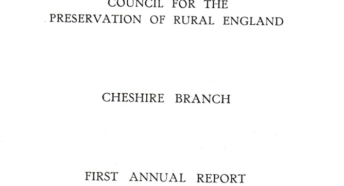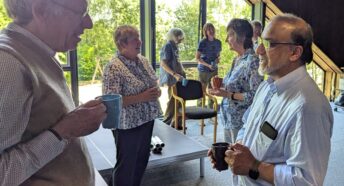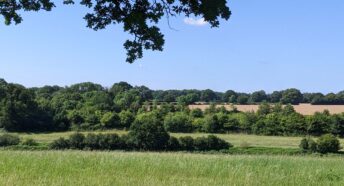CPRE's Green Clean... volunteers pick on litter (and aren't we grateful for that!)



Members, partners and supporters of CPRE Kent pulled on their gloves and grabbed their litter-pickers as they joined other branches, community groups and volunteers to tidy up green spaces and countryside in a collective assault on rubbish.
Evidence from CPRE’s Green Clean will be used to highlight the urgent need for a deposit return system that includes drinks cans, plastic and glass bottles, cartons and pouches.
Last year, hundreds of bags of litter and more than 11,000 drinks bottles and cans were collected, demonstrating the need for an ‘all-in’ deposit return system (DRS).
This evidence helped make the case to former environment secretary Michael Gove, who gave his backing to an all-in system, stating it would give consumers “the greatest possible incentive to recycle”.
CPRE will use this year’s Green Clean to demonstrate that the problem persists and urge current environment secretary Theresa Villiers to pick up where her predecessor had left off, introducing the best scheme as swiftly as possible.
In Kent, litter-picks were held at Graveney and Folkestone.
Volunteers at Graveney were joined by Sarah Merrington, CPRE’s deputy director of volunteering who has just moved to the county, and her sons Oliver and Billy.
Sarah told Kent Voice: “Oliver and Billy are brand-new litter-pickers – and they absolutely loved it. It’s one of the relatively few occasions I have kept them engaged in one activity for more than about 20 minutes!
“They love being active in the countryside and litter-picking really helps bring to life learning about environmental issues and their own role in looking after our countryside. They worked really well together as a team – it was lovely to see.”
Welcome to Kent, Sarah!
Thursday, October 3, 2019
- A number of important documents have yet to emerge. For example, a rigorous transport plan and a finalised air-quality assessment. The latter is critical given that allocations at Teynham will feed extra traffic into AQMAs.
- There seems to be no coherent plan for infrastructure delivery – a key component of the plan given the allocations being proposed near the already crowded Junction 7.
- There seems to have been little or no cooperation with neighbouring boroughs or even parish councils within Swale itself.
The removal of a second consultation might have been understandable if this final version of the plan were similar to that being talked about at the beginning of the consultation process. It is, however, radically different in the following ways:
- There has been a major shift in the balance of housing allocations, away from the west of the borough over to the east, especially around the historic town of Faversham. This is a move that raises many concerns.
- A new large allocation, with accompanying A2 bypass, has appeared around Teynham and Lynsted, to which we are objecting.
- Housing allocations in the AONB around Neames Forstal that were judged “unsuitable” by the council’s own officers have now appeared as part of the housing numbers.
- Most of the housing allocations being proposed are on greenfield sites, many of them on Grade 1 agricultural land – a point to which we are strongly objecting.
Concerns about the rush to submit the plan
The haste with which the plan is being prepared is especially worrying given the concentration of housing in Faversham. If the town is to take a large amount of new housing, it is imperative that the policies concerning the area are carefully worked out to preserve, as far as possible, the unique nature of the town. The rush to submit the plan is likely to prove detrimental.
As Swale does not have a five-year land housing supply, it is open to speculative development proposals, many of which would run counter to the ideas contained in the current plan. Some are already appearing. This is a common situation, and one that, doubtless, is a reason behind Swale’s haste.
Our overriding fear, however, is that this emphasis on haste is ultimately going to prove counterproductive. This is because it is our view that the plan, in its current form, is unlikely to pass independent examination. We are urging Swale to listen to and act upon the comments being made about the plan and to return the plan to the council with appropriate modifications before submitting it to the Secretary of State.
Essentially, this means treating the current consultation not as the final one but as the ‘lost’ second consultation.
The consultation ends on Friday 30 April and we strongly urge residents to make their opinions known if they have not already done so.
Further information








